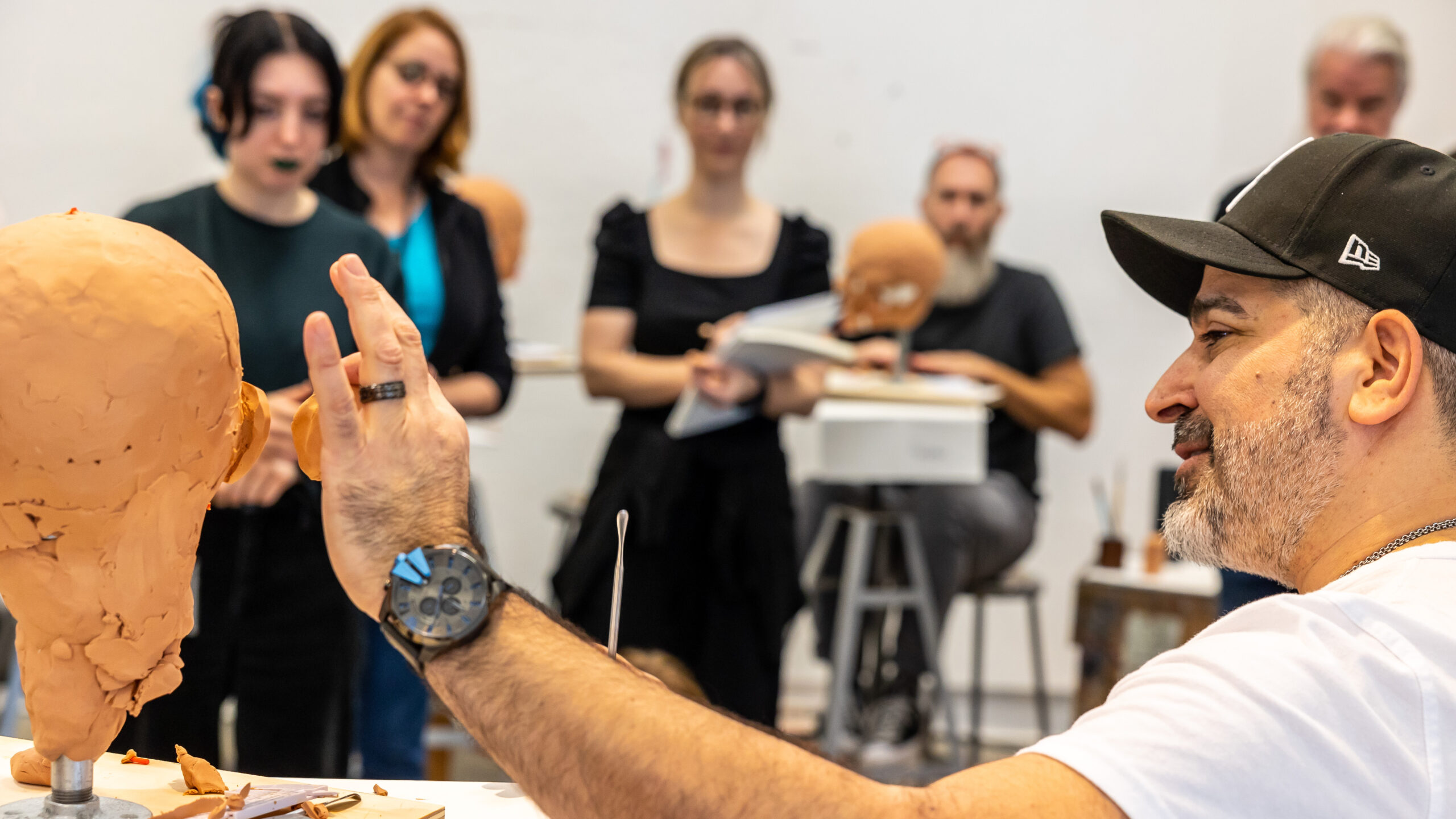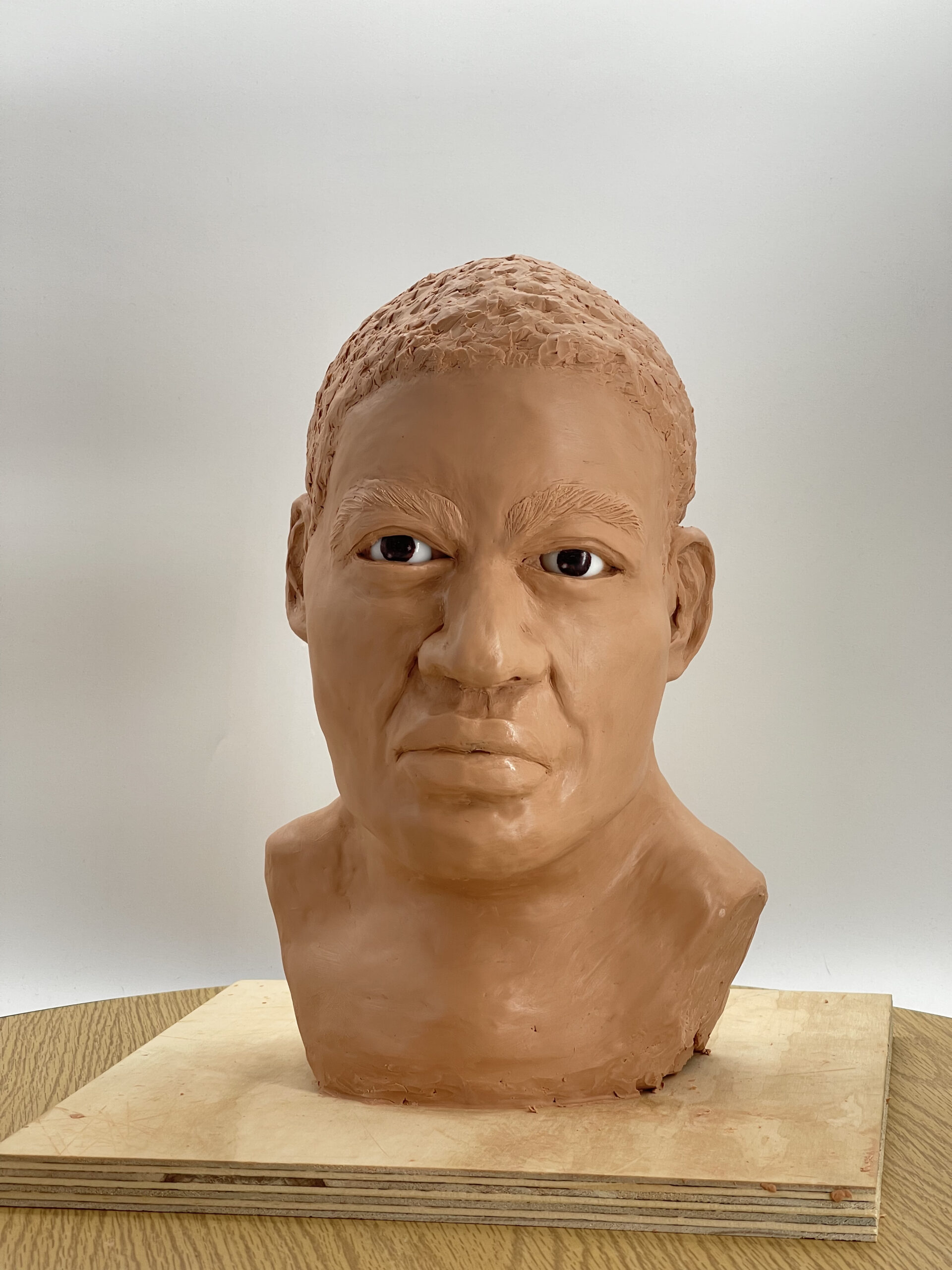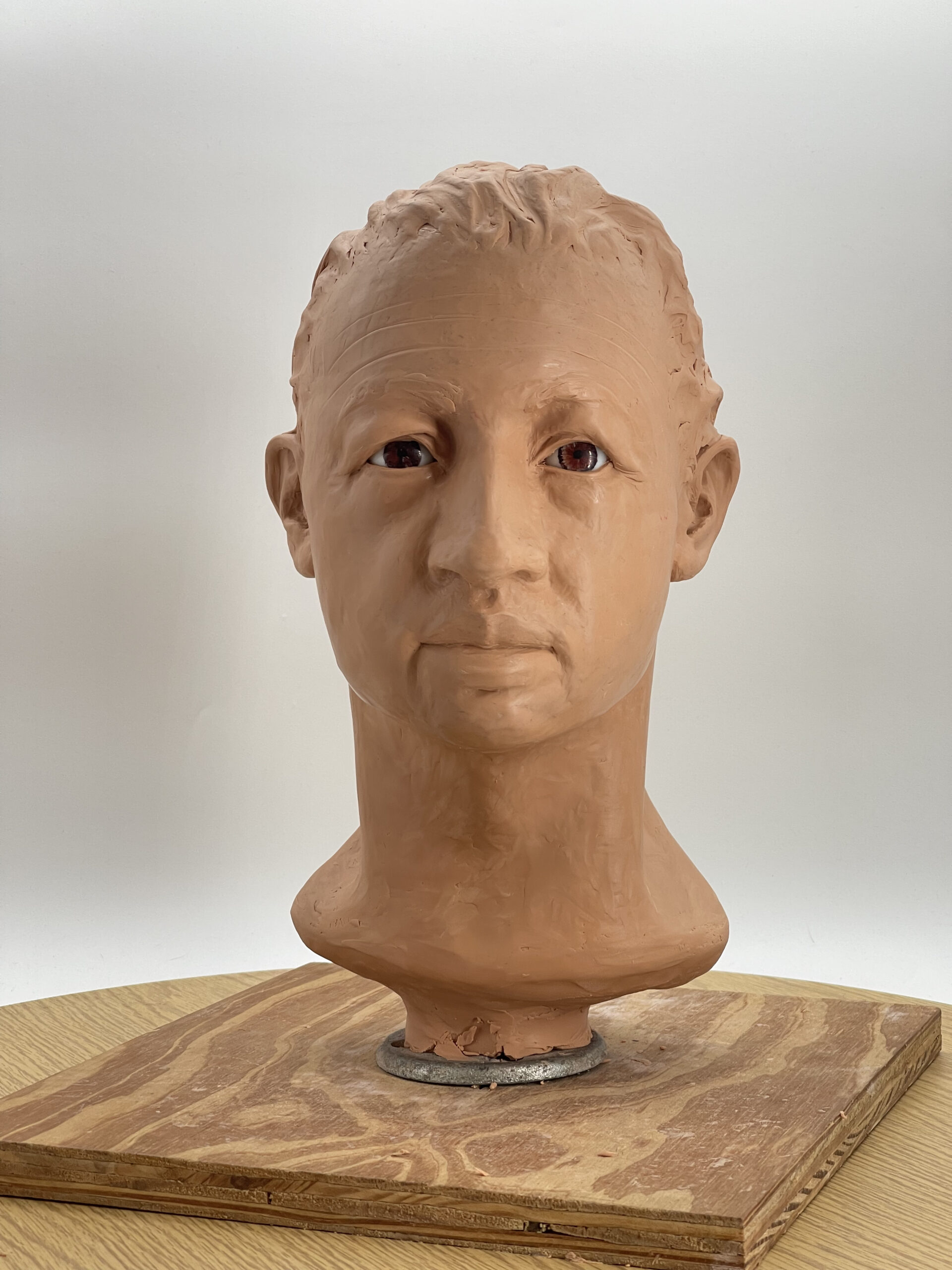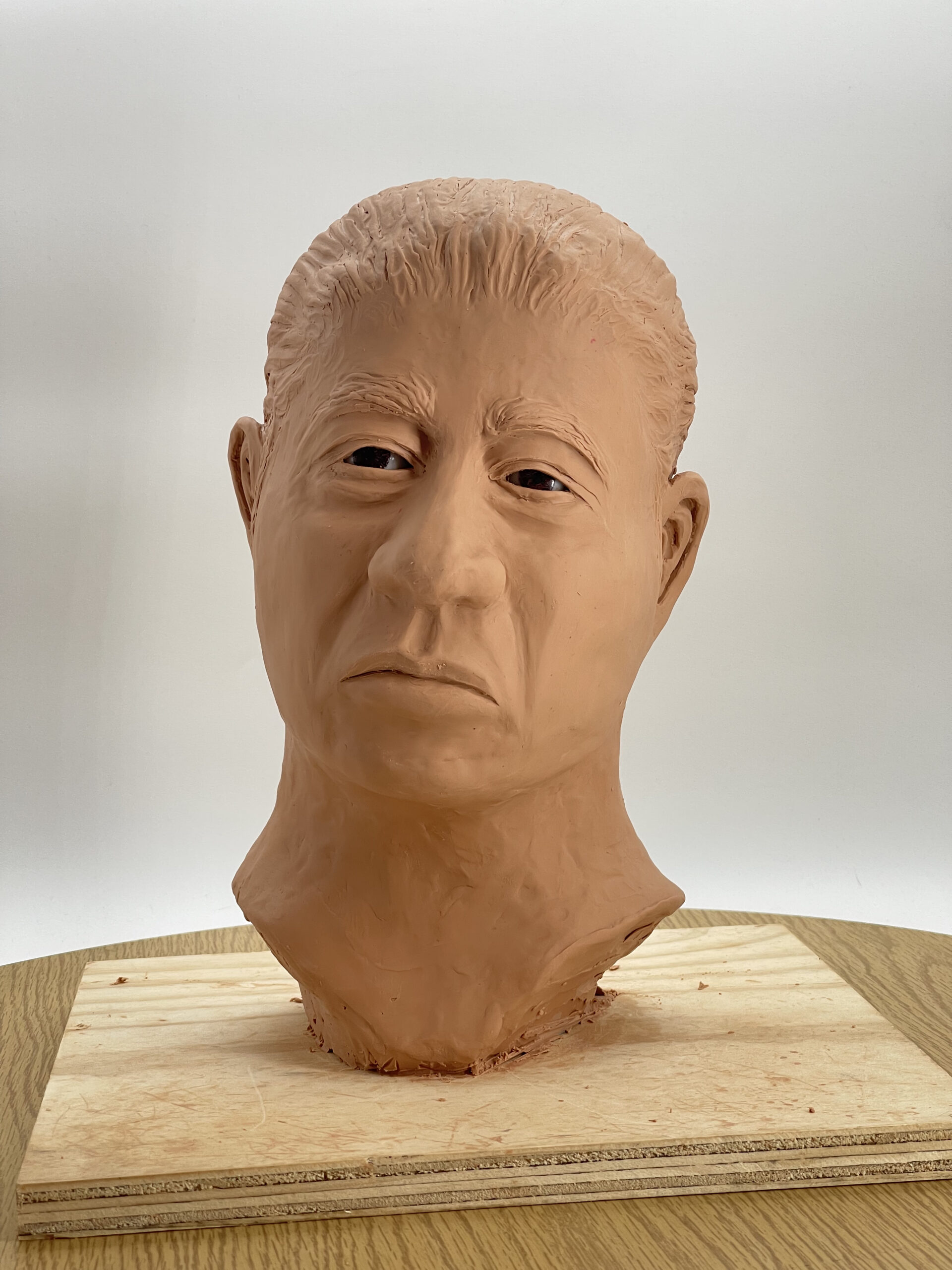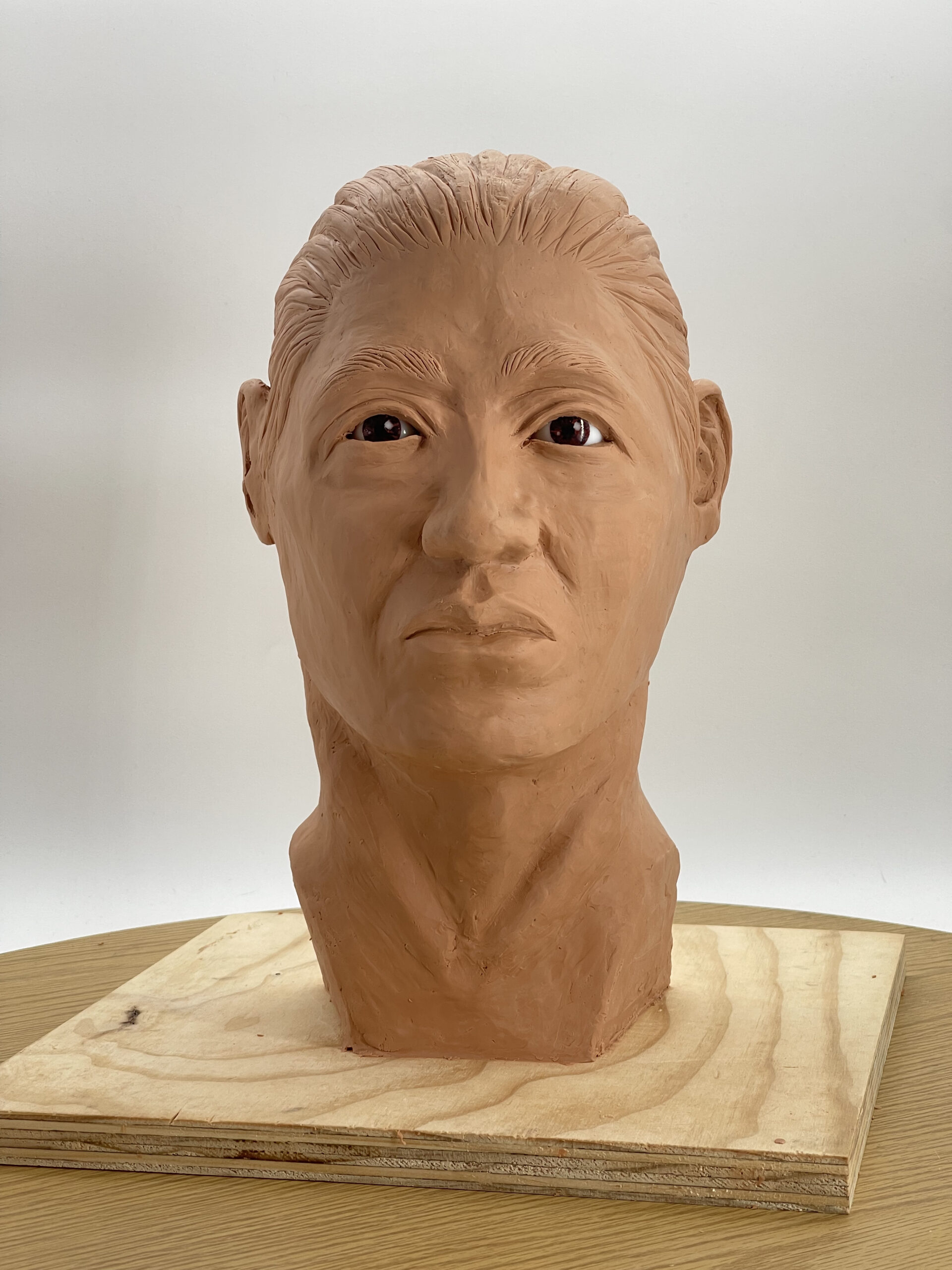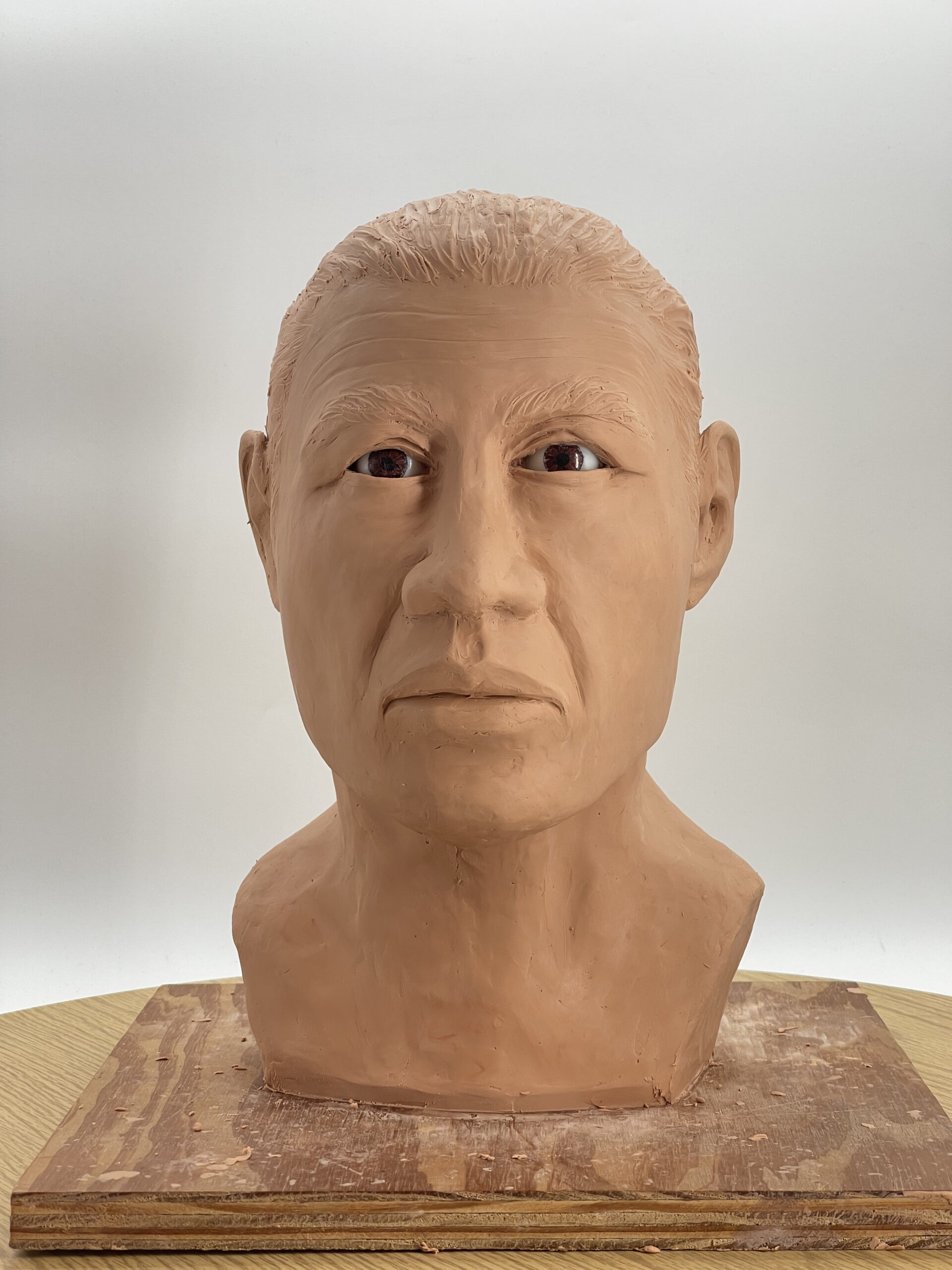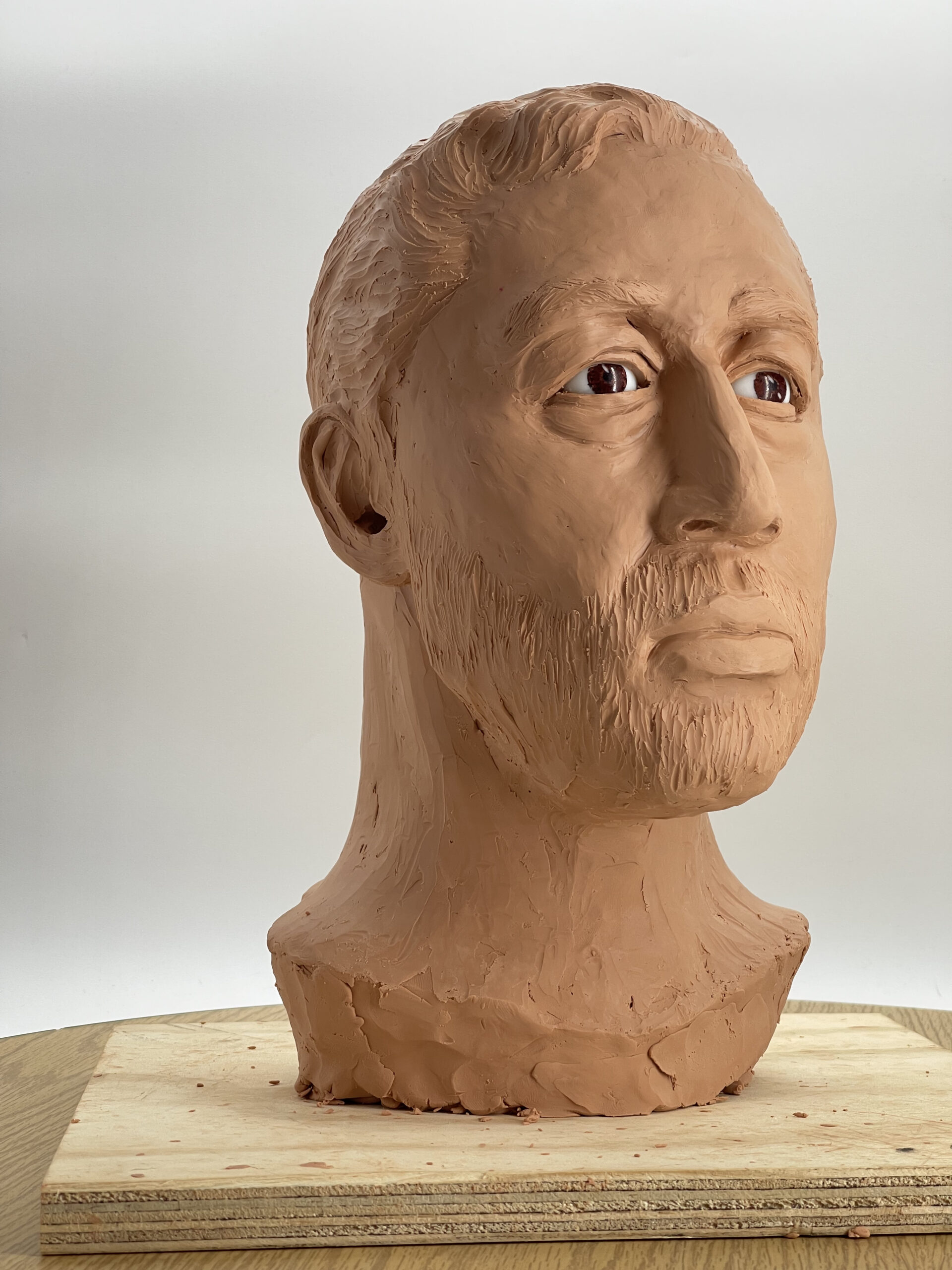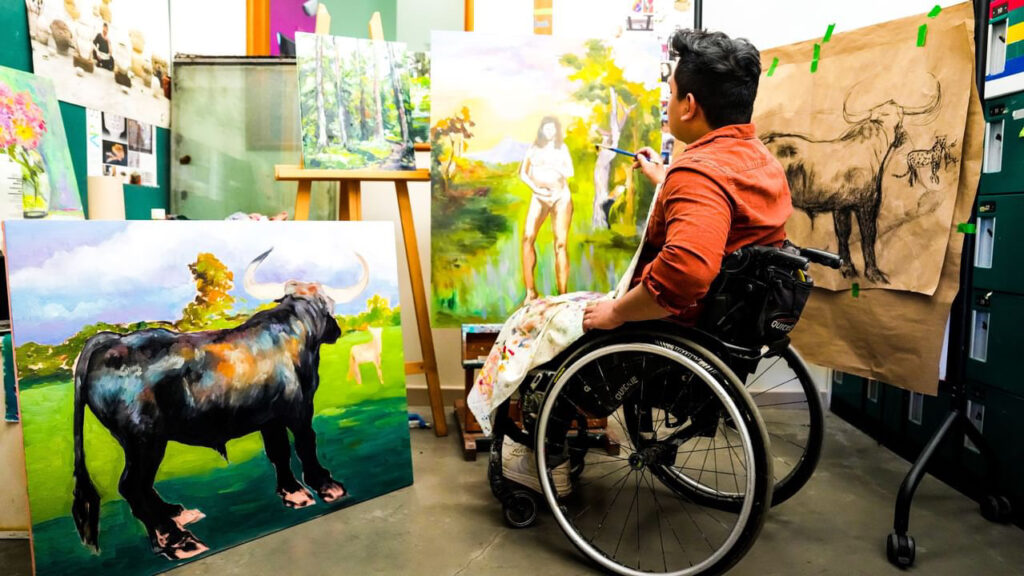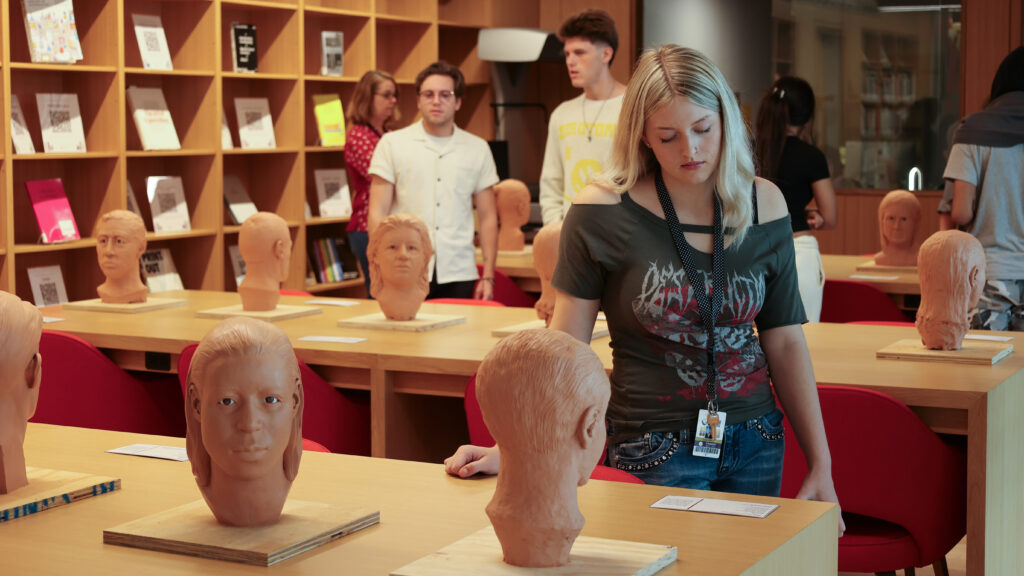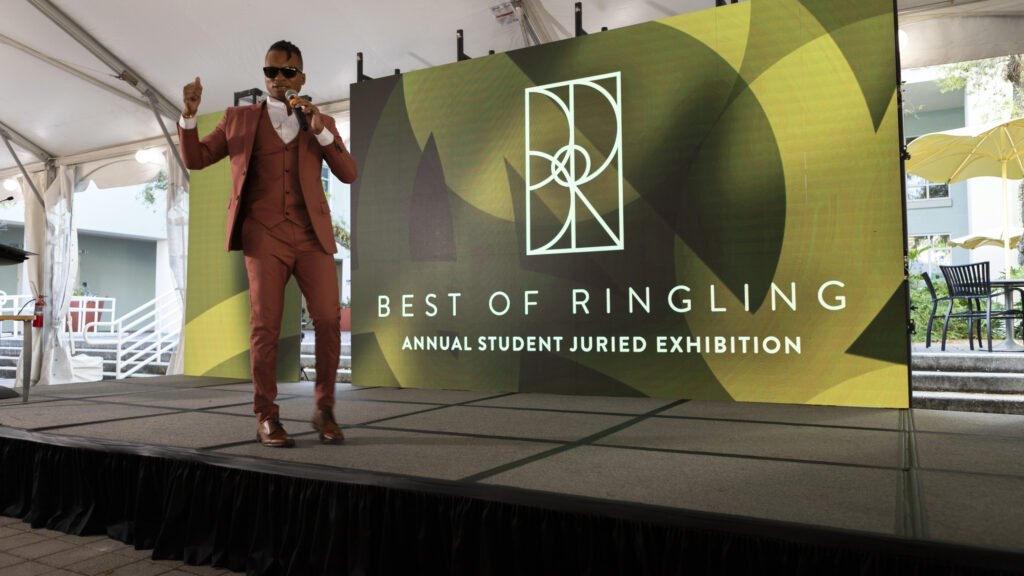Ringling College of Art and Design students, faculty, and an alum spent the College’s spring break learning the art of reconstruction as they brought skulls from active and cold cases back to life with clay. Guided by forensic artist Joe Mullins, the class recreated the faces of real victims, through a process called facial approximation. For this workshop, the artists began with 3D-printed skulls of 17 different victims, six from active cases. Many of the skulls came from the Medical Examiner’s Office in Fort Myers, Florida, and one came from the Bronx in New York.

Students spent their spring break assisting in cold case files and learning the art of facial approximation.
From Monday to Friday 10 am-5 pm on March 4-8, participants built up the busts using a unique set of guidelines—markers that measure the approximate thickness of tissue on each part of the skull, basic rules of anatomy, and lessons on how to read the skull, mixed with a small brief about the victim, when possible: their sex, approximate age, and possible ethnicity.
The workshop drew attention from many news sources in the area, a vital aspect of the process that helps spread the images of the busts throughout the region, and hopefully, helps get these victims identified. The class was covered by Fox13 Tampa Bay, ABC7 Suncoast News, News Channel 8 Tampa Bay, BNN Hong Kong, and Channel 10 Tampa Bay.

Third-year Illustration student Noah Shadowens said, “I want to fulfill the skull. I’m missing a lot on mine, so I want to try and do my best to recreate whoever this was.”
Mullins has been offering forensic workshops around the country since 2015 which have led to the closure of a number of cases. The busts will be on display in Ringling College’s Alfred R. Goldstein Library at the end of the month, which is open to the public for viewing.
If you recognize any of the faces from the workshop, please contact the Hendry County Sheriff’s Office, Lee County Sheriff’s Office, or Glades County Sheriff’s Office.
Hendry County Sheriff’s Office contact is Capt. Mike Rowan and Capt. Susan Harelle at 863-674-5600.
The contact at Lee County Sheriff’s Office is Capt. James Roncinske at 239-477-1140.
The contact at Glades County Sheriff’s Office is Lt. Gary Johnson at 863-946-1600.

